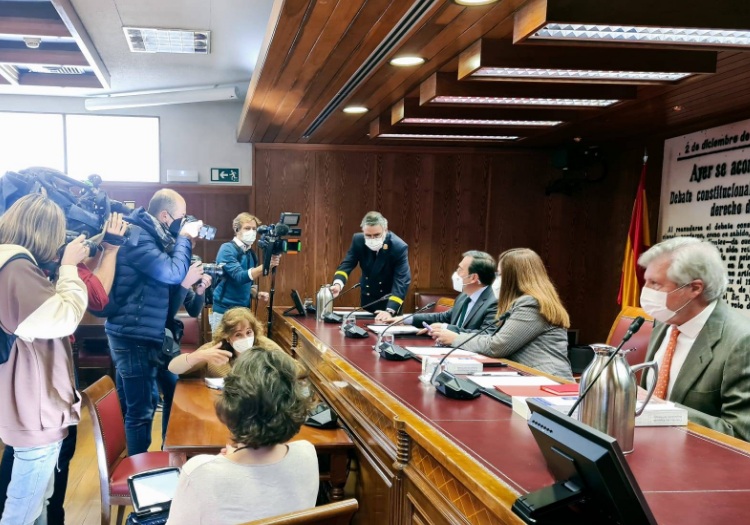The Diplomat
Foreign Minister José Manuel Albares announced yesterday in the Senate that Spain will complete “in the coming weeks” the delivery of up to 21 million doses of COVID-19 vaccines to Latin America and the Caribbean.
“Spain has far exceeded the initial commitment to donate 7.5 million vaccines against COVID-19 to Latin America and the Caribbean,” the minister assured during his appearance before the Committee on Ibero-American Affairs of the Upper House. “We have already delivered more than ten million doses, and in the coming weeks we will distribute another ten million,” which will represent, “in total, some 21 million doses,” he added.
These deliveries, he assured, have been carried out “independently of the color or political sign of the governments”. An example of this, he pointed out, is the donation of 755,000,940 doses to Nicaragua despite the “profound rejection” shown by the Spanish government to Daniel Ortega’s regime.
The objective of Spanish aid, explained Albares, is that, in the medium and long term, “Latin America, like Europe, will enjoy a rapid, fair and comprehensive economic recovery”, for which the region will have to face important challenges, “such as the differences in vaccination rates” and the difficulties in getting vaccines “to the most remote areas”.
Another of the region’s major problems, apart from COVID-19 and its economic consequences, is the fragility of “democratic systems, a global phenomenon that also affects us in Europe, but which is having a special impact on Latin America and the Caribbean. An example of this, he warned, is the inexistence or “erosion”, in “some Latin American countries”, of a system of “competitive and free elections” and of “counterpowers that ensure rights and freedoms”. In any case, Albares insisted, once again, that Latin America is something “more than the three countries” that are always talked about, in reference to Cuba, Venezuela and Nicaragua.
In the case of Cuba, Albares assured that the Government views “with great concern” the events related to the protests of July 11 (almost 800 people have been charged with sedition, vandalism, theft and public disorder for participating in these events) and with the “failed mobilization” called on November 15 by the opposition. For this reason, the minister took the opportunity to ask, once again, that “the right of peaceful demonstration and expression of all citizens be respected and guaranteed”.
Regarding Venezuela, Albares affirmed that the recent municipal and regional elections showed “progress” but “did not meet democratic standards”. In any case, he affirmed, the participation of the opposition for the first time since 2015 meant “a step forward in the recovery of democratic spaces” and the victory of the opposition candidate in the electoral rerun in Barinas “shows that there is a democratic path and dialogue in Venezuela, even if it is fragile and narrow”.
Gonzalo Robles (PP) denounced the “crisis of Spain’s reputation in Latin America”
In his intervention, the PP spokesman in the Commission, Gonzalo Robles, stated that Spain is going through a “reputation crisis in Latin America” due to the problems generated by “the Government’s partners” and the “historical revisionism that does not have the most appropriate response”, in reference to the statements of the Mexican President, Andrés Manuel López Obrador, or the Venezuelan President, Nicolás Maduro, on the Spanish colonial past. For this reason, he demanded, as opposed to the “ostrich policy of looking the other way”, that he be “proactive” and be able to “vindicate both the good of the past and the good of the present”.
For his part, the UPN senator, Alberto Catalán, criticized the positions of the Government partners because “a democratic Executive cannot have partners who defend authoritarian regimes in Latin America”. “You cannot put one candle to God and another to the devil”, warned Catalán, who also regretted the positions of former Prime Minister José Luis Rodríguez Zapatero on Venezuela, which “is affecting the policy of the Executive of Spain and the European Union”.







